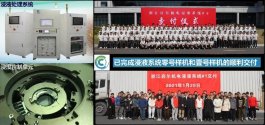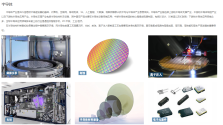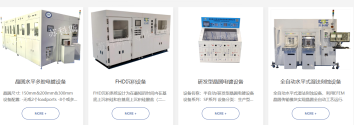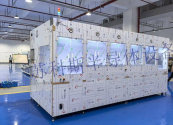On June 9, according to the Hong Kong Stock Exchange, Shenzhen Chuangzhi Xinlian Technology Co., Ltd. (hereinafter referred to as Chuangzhi Xinlian) submitted an application for listing on the main board of the Hong Kong Stock Exchange. Haitong International, CCB International and China Merchants Securities International are its joint sponsors.
According to the prospectus, Chuangzhi Xinlian is a provider of metallization interconnect coating materials and key process technologies, committed to promoting the development of the coating material supply chain in wafer-level and chip-level packaging, as well as PCB manufacturing. The company has developed a complete product matrix of chemical plating and electroplating materials, covering the application scenarios of wafer-level packaging, chip-level packaging and PCB manufacturing.
From 2022 to 2024, Chuangzhi Xinlian achieved revenues of approximately RMB 320 million, RMB 312 million, and RMB 410 million, respectively, and annual profits of RMB 27.328 million, RMB 19.421 million, and RMB 52.706 million, respectively, during the same period.
According to Frost & Sullivan, the company is the largest domestic wet process coating material provider in the Chinese market in terms of revenue in 2024, and is also the largest one-stop coating solution provider in the Chinese market. The company's revenue mainly comes from the coating material business and coating service business included in the one-stop service solution.
Among them, the coating material business is the company's main business, generating revenue through the manufacture and sale of coating materials used in chemical plating and electroplating processes in the semiconductor and PCB industries. In 2024, the coating material business revenue was 330 million yuan, accounting for 80.2% of the total business revenue; the revenue from the coating service business was 81.09 million yuan, accounting for 19.8%.
It is understood that wet process coating materials are a typical wet electronic chemical, which refers to the chemical substances used to deposit a thin layer of metal or alloy on the surface in the wet process of semiconductor and PCB manufacturing. As one of the key materials for the transmission of electrical signals inside semiconductors and between semiconductors, packaging substrates and PCBs, wet process coating materials play a vital role in the mechanical connection, electrical connection and heat dissipation of electronic components (especially semiconductors).
Chuangzhi Xinlian's coating materials and services cover the two core coating processes in the field of electronic packaging used in the semiconductor and PCB industries: chemical plating and electroplating. Specifically, the main products include chemical nickel gold/chemical nickel palladium gold, electroplated copper and cyanide-free electroplated gold coating materials. When managing the coating service business division, the company provides customers with coating services for silicon wafers, silicon carbide wafers, packaging substrates, and PCBs, and charges service fees.
According to the Frost & Sullivan report, from 2022 to 2023, due to the short-term decline in demand in the semiconductor and PCB industries, the total market size of wet process coating materials will drop to RMB 38 billion in 2023. However, in 2024, driven by the rising demand in downstream industries, the global wet process coating materials market rebounded to RMB 40.7 billion. In the future, the global wet process coating materials market size is expected to reach RMB 73.7 billion in 2029, with a compound annual growth rate of 12.6% from 2024 to 2029.




